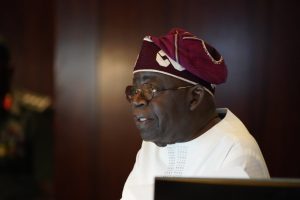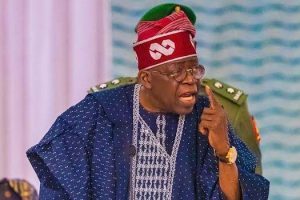The Minister of the Federal Capital Territory (FCT), Nyesom Wike, has called for a meeting with the chairmen of the FCT area councils and the leadership of the Nigerian Union of Teachers (NUT), FCT Wing, in an effort to resolve a prolonged strike by primary school teachers.
The strike stems from unresolved issues concerning the teachers’ welfare.
Minister Wike announced the meeting in Abuja on Thursday while inspecting ongoing infrastructure projects ahead of their planned inauguration to mark President Bola Tinubu’s second anniversary in office. His statement followed protests by teachers which took place on Wednesday.
Describing the situation as “very unfortunate,” the minister questioned the integrity of the FCT area council chairmen, who he said had failed to pay the teachers their due entitlements despite receiving approved funds for that purpose.
“They were unable to pay them. In fact, I got the report yesterday and have summoned all of them for a meeting,” Mr. Wike stated.
He expressed his dismay, saying, “I don’t know why people don’t have a conscience that these are teachers who take care of our children, and you are happy that you are not paying them their salaries.”
Mr. Wike clarified that primary schools fall under the responsibility of the area councils, not the FCT Administration itself, stressing that the councils are responsible for their management. He appealed to the NUT for patience, assuring them that the matter would be resolved soon.
Earlier, the NUT Chairman, Abdullahi Shafa, who led the teachers’ protest, acknowledged Mr. Wike’s intervention in the ongoing industrial action. He noted the release of 4.1 billion Naira to the area councils intended for the striking teachers’ payments.
However, Mr. Shafa accused the area council chairmen of diverting these funds and called on the National Assembly and the Economic and Financial Crimes Commission (EFCC) to intervene and hold the chairmen accountable.
Primary school teachers in the FCT have staged multiple strikes due to the non-payment of the national minimum wage and a 40 percent Peculiar Allowance. Other unresolved grievances include the non-implementation of 25 percent and 35 percent salary increases, a 35,000 Naira wage award, and other outstanding benefits.





Add Comment